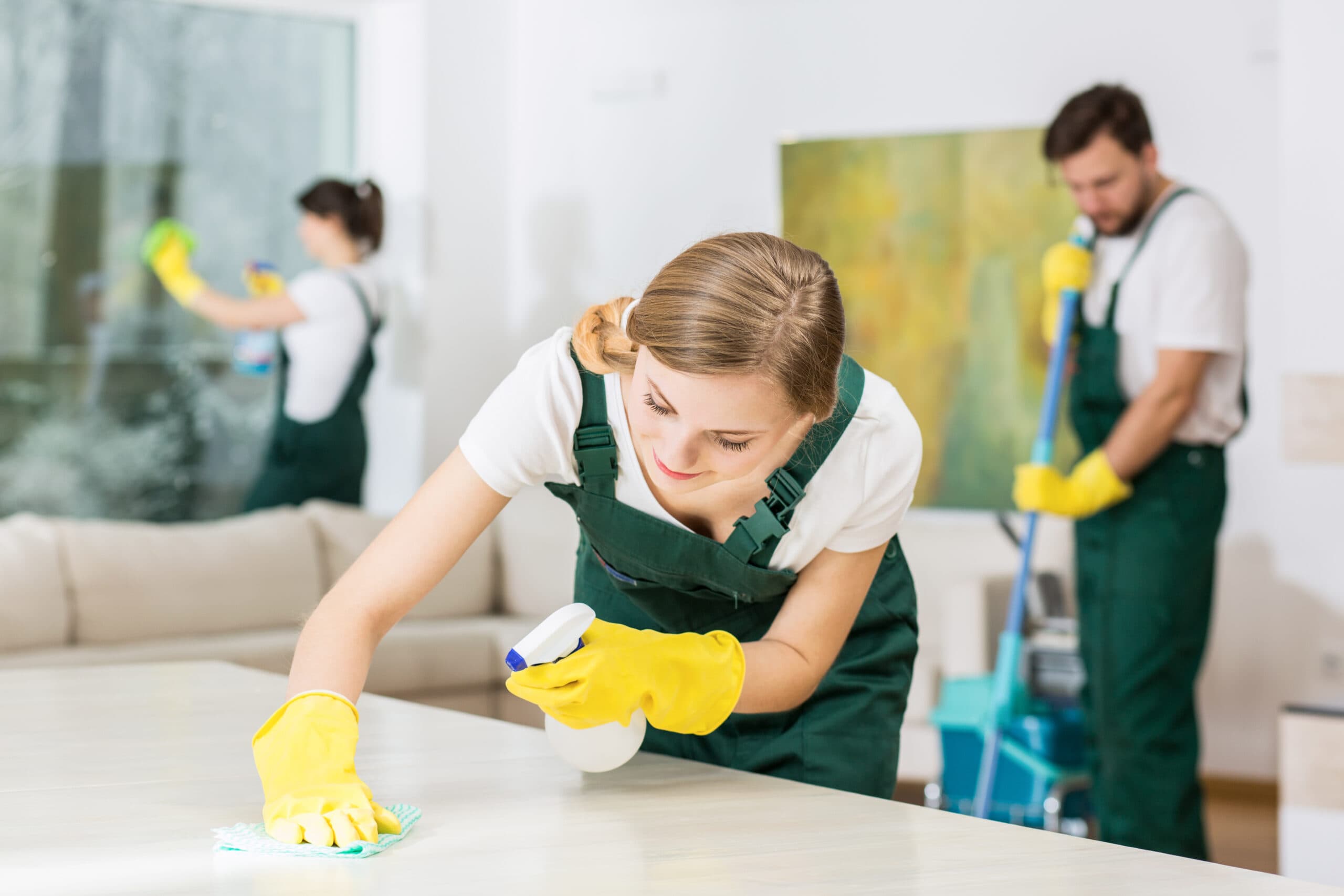Hard water stains are common in kitchens, especially around fixtures like faucets and sinks. In hard water, these unsightly spots are caused by mineral buildup, typically calcium and magnesium. Over time, these minerals leave a chalky residue that can dull the shine of your fixtures, and if not treated, these stains can become more difficult to remove.
Fortunately, there are several effective methods to tackle complex water stains and restore the sparkle to your kitchen. Here’s an expanded guide on the best ways to get rid of these stains and some preventative tips to help keep them from reappearing.
Understanding Hard Water Stains
Before jumping into the cleaning methods, it’s helpful to understand what hard water stains are. Hard water contains high levels of minerals like calcium, magnesium, and iron. When water evaporates, it leaves behind mineral deposits that form white, chalky stains, commonly on sinks, faucets, and other fixtures exposed to water. If left untreated, these stains can also lead to limescale buildup, damaging fixtures and reducing water flow. Regular cleaning is essential to prevent hard water stains from hardening and becoming more challenging.
Effective Methods to Remove Hard Water Stains
1. Vinegar and Water Solution
Vinegar is a natural and effective solution for breaking down mineral deposits. The acidity in vinegar dissolves calcium buildup and helps remove stains with ease. Here’s how to use it:
Step 1: Mix equal white vinegar and water in a spray bottle.
Step 2: Spray the solution generously on the stained areas.
Step 3: Let it sit for 5-10 minutes to allow the vinegar to dissolve the mineral deposits.
Step 4: Wipe the area with a soft cloth or sponge.
Step 5: Rinse with water and dry thoroughly to prevent future stains.
For tougher stains, you can soak a cloth in vinegar and wrap it around the faucet or handle, leaving it for up to 30 minutes before scrubbing. This method is safe for most metal fixtures and doesn’t require harsh chemicals.
2. Baking Soda Paste
Baking soda is a gentle abrasive and can help scrub stubborn hard water stains without damaging surfaces.
Step 1: Mix baking soda with a small amount of water to create a thick paste.
Step 2: Apply the paste directly to the stained areas, focusing on areas with heavier buildup.
Step 3: Gently scrub the area with a soft-bristled brush or sponge.
Step 4: Rinse thoroughly and dry the fixture to prevent future stains.
This method works well for stainless steel and other resilient surfaces in the kitchen. Avoid scrubbing too hard, even gentle abrasives can dull certain finishes with excessive pressure.

3. Lemon Juice and Salt
Lemon juice is acidic and effective at breaking down mineral deposits. Combined with salt, it can create a natural abrasive for tackling tough stains.
Step 1: Cut a lemon in half and sprinkle salt on the cut side.
Step 2: Rub the lemon and salt mixture directly onto the stained areas.
Step 3: Allow it to sit for a few minutes to let the acidity in the lemon break down the buildup.
Step 4: Rinse with water and wipe dry.
Lemon juice not only removes stains but also leaves a fresh scent. This method is especially useful for smaller, hard-to-reach areas on faucets and handles.
4. Using Commercial Cleaners
Commercial lime and rust removers can be highly effective for particularly stubborn stains. These products are designed to dissolve mineral buildup and are often found at hardware stores.
Step 1: Apply the cleaner to the stained area as directed on the product label.
Step 2: Let it sit for the recommended time (usually a few minutes).
Step 3: Scrub with a brush or sponge and rinse thoroughly.
Be sure to use gloves when handling these products and ensure proper ventilation, as many contain chemicals that irritate skin or cause fumes.

5. Toothpaste Trick for Small Fixtures
Surprisingly, toothpaste can also be effective for more minor stains on faucets and handles, especially when they aren’t too large.
Step 1: Apply a small amount of toothpaste to a damp cloth.
Step 2: Rub it gently on the stained area.
Step 3: Rinse and wipe dry.
Toothpaste is a mild abrasive and can bring back shine to chrome and stainless steel fixtures.
Preventing Hard Water Stains in the Future
Once you’ve cleaned your kitchen fixtures, taking preventative measures can help reduce future staining:
- Dry Fixtures After Use: Wiping down sinks, faucets, and countertops with a dry cloth after use can help prevent mineral deposits from forming as the water evaporates.
- Install a Water Softener: If your home has tough water, installing a water softener can reduce the mineral content, helping to minimize hard water stains throughout your kitchen and bathroom.
- Use a Protective Coating: Apply a protective coating, like a wax or specialized surface protectant, to your fixtures to create a barrier against mineral deposits. This can reduce the cleaning frequency and extend your fixtures’ lifespan.
- Regular Maintenance: Cleaning your kitchen fixtures weekly with a mild cleaner can help prevent buildup. Regularly wiping surfaces down prevents stains from becoming harder to remove.
Final Thoughts
Keeping your kitchen fixtures free from hard water stains requires regular cleaning and preventative care. Simple household items like vinegar, baking soda, and lemon juice can remove even the toughest stains while avoiding harsh chemicals. Drying and maintaining fixtures can also extend their life, reduce the need for deep cleaning, and keep your kitchen looking spotless.
Consider these tips and routines as part of your regular kitchen cleaning habits, and you’ll find it easier to manage hard water stains in the long run. If you find the stains particularly tough or widespread, consulting with a professional cleaning service might be worthwhile to help restore your fixtures. With consistent care, your kitchen can stay gleaming and stain-free year-round!








